Longmont Probate Attorneys
Probate Done Differently: Since 1989
When we founded Jorgensen, Brownell & Pepin, P.C. in 1989, we made a commitment to deliver strategic and compassionate services to our clients. This commitment is partly driven by our firsthand experience of seeing too many legal firms mishandle probate affairs.
We vowed to do things differently—a commitment we’ve upheld for 30+ years.
When we can help our clients bypass probate, we do so. When we can’t, we streamline the process, making things easier for personal representatives by taking preemptive steps to mitigate unnecessary family disputes.
We tailor our strategies to address each client’s unique needs, ensuring that everything we do begins with you. That means taking time to listen, answering common questions about probate with care and concern, and then collaborating to ensure our clients achieve the best possible outcome.
That’s the Jorgensen, Brownell & Pepin, P.C. difference.
Whether you need assistance closing a straightforward estate, are navigating family disputes, are a personal representative with questions about fulfilling your fiduciary duty, or simply wish for a smooth probate resolution, contact us today. We’re here to help.
Understanding the Probate Process
For those unfamiliar with probate, it is a legal process that deals with the distribution of the deceased’s estate. Generally, it involves these key steps:
- Filing a petition with the courts to admit the will to probate and appoint an executor
- Publishing legal notices and informing beneficiaries and creditors of the deceased’s passing
- Taking inventory of the estate, which includes everything from property and stocks and bonds to financial accounts and personal property
- Paying debts to any creditors before distributing any assets
- Distributing assets according to the will (in cases where there is no will, the personal representative must distribute according to the state’s intestacy laws)
The Probate Timeline: Addressing Common Misconceptions
While it is true that some probate cases stretch out for years, this is generally due to familial conflicts or cases where beneficiaries challenge a will because:
- A family member is absent from the willAn heir was unexpectedly removed from the will at the last minute
- There are suspicions that the deceased created the will when not of sound mind
- Beneficiaries suspect that the will was tampered with or the deceased was coerced while creating it
In many cases, probate can be navigated in as few as six months—or, in some cases bypassed altogether if a trust exists and is not challenged. Probate can also potentially be avoided if the decedent’s estate falls below any enforced estate tax levels.
Why Longmont Families Turn to Our Probate Attorneys
Navigating probate requires the perfect blend of knowledge, expertise, and compassion. The team at Jorgensen, Brownell & Pepin, P.C. offers exactly that. Here’s what you can expect when you work with our Colorado probate team:
- 40+ Years of Experience: We’ve built a reputation on competence and compassion. Our track record speaks for itself and we encourage you to see what our satisfied clients say about us.
- Custom Legal Solutions: We don’t believe in one-size-fits-all solutions. You are as unique as your case. We will work with you to create a custom strategy tailored to your needs and goals.
- A Comprehensive Approach: Our team has deep knowledge of all matters related to estate planning. From avoiding probate and setting up a charitable remainder trust to reducing tax liability, we can help.
- Compassionate Guidance: We believe in efficiency, but not at the expense of kindness and compassion. Our team is dedicated to helping clients overcome common legal obstacles with care.
Frequently Asked Questions
Can you explain the probate process?
It typically involves transferring the deceased's assets to their beneficiaries, paying off any debts, and settling the estate. The duration can vary significantly, typically ranging from a few months to over a year, depending on the estate's complexity, the presence of a will, and any disputes that may arise.
How can an executor or personal representative be appointed?
An executor or personal representative is usually named in the deceased’s will. If no will exists, or the named individual is unable or unwilling to serve, the court will appoint someone. Our attorneys can assist in the appointment process, ensuring it aligns with legal requirements and the estate's needs.
What are my responsibilities as an executor or personal representative?
The responsibilities include inventorying the estate’s assets, paying debts and taxes, and distributing the remaining assets to the rightful heirs. Our legal team can guide executors through these duties, offering advice and support to ensure they fulfill their obligations efficiently and in accordance with the law.
How are estate debts and taxes handled during probate?
Estate debts and taxes must be identified and settled before distributing assets to beneficiaries. This includes filing final income tax returns, paying off creditors, and addressing any estate taxes due. Our attorneys can help manage these financial responsibilities, ensuring compliance with tax laws and creditor claims.
Can the probate process be avoided altogether?
Yes. However, this requires proper estate planning prior to death —establishing living trusts, designating beneficiaries on financial accounts, or owning property jointly. While specific strategies depend on individual circumstances and state laws, understanding these options can significantly reduce the time and expense of settling an estate.
Probate Specialties
Get more information about our probate representation
We’ve Helped Others Like You
Our Colorado Attorneys











Get The Help You Need
Get JBP Legal’s experience on your side. Contact us for questions or a consultation.





